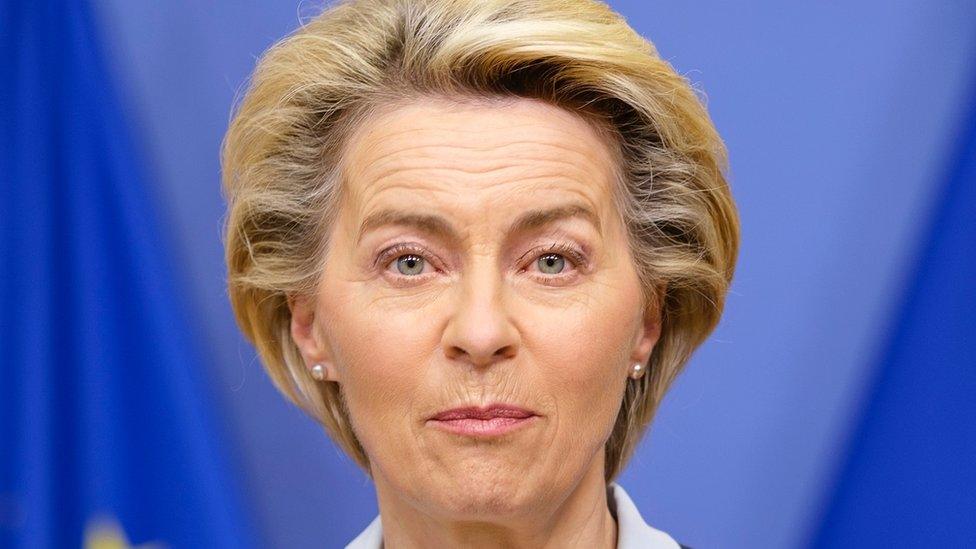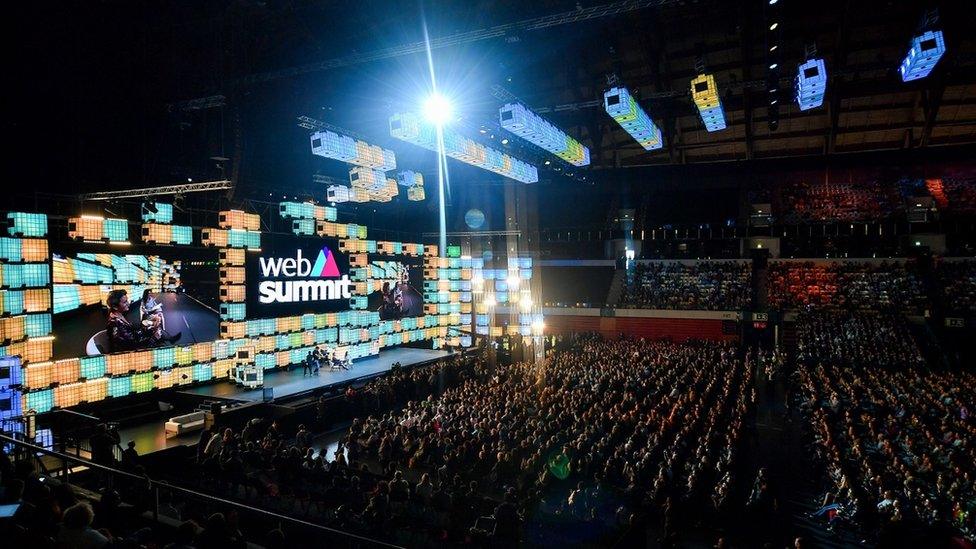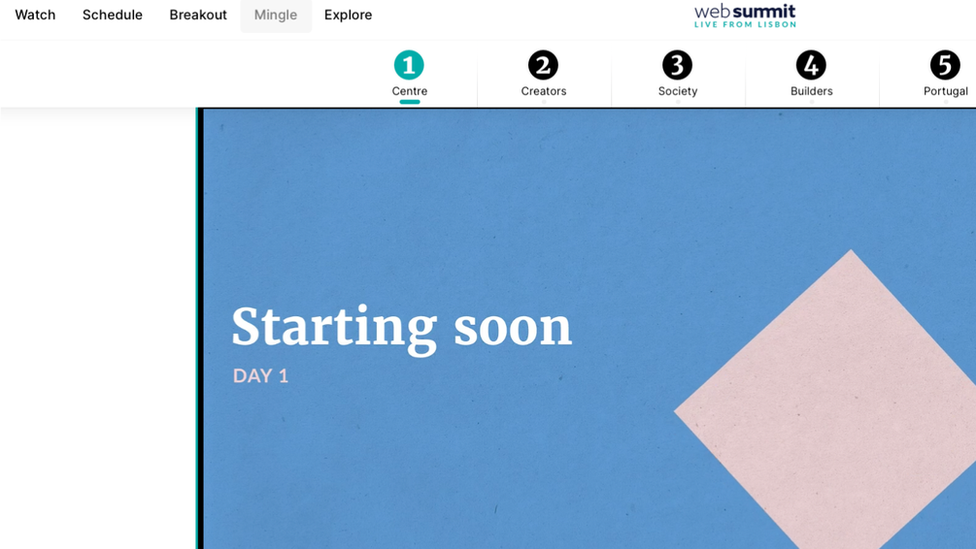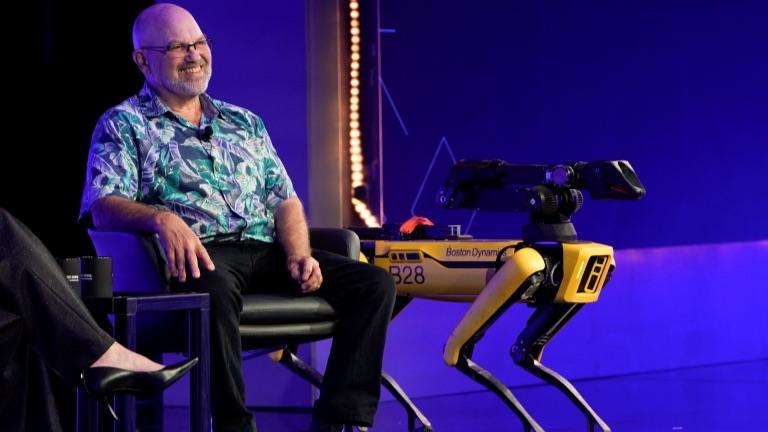Web Summit: Stricter rules for technology companies
- Published

The President of the European Commission, Ursula von der Leyen, announced rules for digital content
A radical overhaul of how big technology companies are regulated has been announced by the president of the European Commission at Web Summit, which this year is a virtual event.
Ursula von der Leyen said the commission would be "rewriting the rulebook for our digital market".
It will mean far stricter rules for online content - from selling unsafe products to spreading hate speech.
Ms Leyen described herself as a "tech optimist".
Illegal content
The value of European technology companies had risen by almost 50% in the 2020, she said, partly because the global pandemic has served as a "catalyst for innovation".
But that did not mean the technology giants could operate outside the rules that applied to offline content.
"No-one expects all digital platforms to check all the user content that they host," Ms Leyen said.
"This would be a threat to everyone's freedom to speak their mind."
But she added: "If illegal content is notified by the competent national authorities, it must be taken down."
More pressure
The Digital Services Act will replace the EU's 2000 e-commerce directive.
Due to come into force on Wednesday, 2 December, it has now been delayed until next week.
Likely to put more pressure on social-media platforms to take down and block unlawful content more quickly, the new rules will almost certainly be contested by companies such as Google and Facebook, which now face far stricter regulation both in Europe and the US, following complaints about the spread of misinformation and hate speech.

Last year, Web Summit filled a huge auditorium in Lisbon
According to the organisers, 100,000 people have bought tickets to the online-only Web Summit, compared with the 70,000 who attended in person in 2019, even though they are still charging between €219 (£193) and €999, about a quarter of the usual price.

Web Summit 2020 sees delegates watching on a screen at home
It is using a bespoke software platform that, as well as hosting speakers, panel and question-and-answer sessions, has features such as Mingle, which uses algorithms to match like-minded people for short three minute chats, in an attempt to recreate networking.
The conference has attracted some big hitters, such as tennis champion Serena Williams.
Singer Liam Payne will take part in a panel discussion about digital music.
Zoom chief executive Eric Yuan and Facebook's chief technology officer Mike Schroepfer will also give talks.

Last year Web Summit chief executive Paddy Cosgrave's jumper hit the headlines
Earlier this year, Web Summit chief executive Paddy Cosgrave tod BBC News he personally could not wait for the return of in-person conferences.
"Nothing compares to the buzz of a large event," he said.
"Not to offend our wonderful speakers but they are the excuse - people go to meet other people, to network."
And at last year's Web Summit, in Lisbon, Mr Cosgrave's jumper made the headlines when it was revealed versions of it were being sold in the conference's merchandise store for £720.
Virtual version
Organisers of other big conferences will be watching the progress of the virtual event with interest.
The huge technology gadget fair CES, normally in Las Vegas, has already decided to go online-only in January, as has the Technology, Entertainment and Design (Ted) conference, which will swap Vancouver for a virtual version in spring 2021.
But others remain more optimistic.
The World Economic Forum, usually in Davos, Switzerland, at the end of January, will shift to May, with a new venue in Lucerne.
And Mobile World Congress plans to host its event in Barcelona in June rather than February.
- Published6 November 2019

- Published7 November 2019
